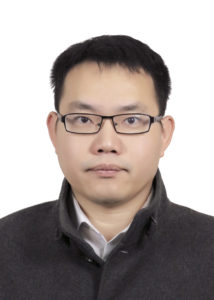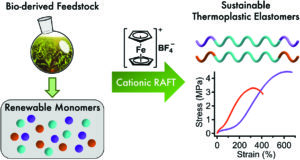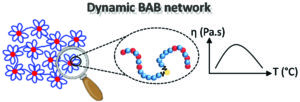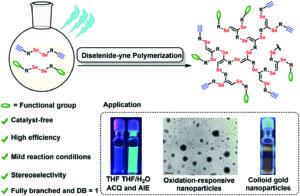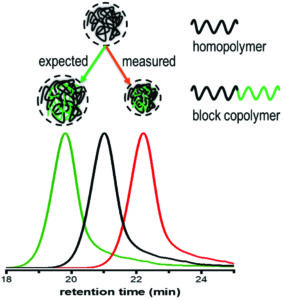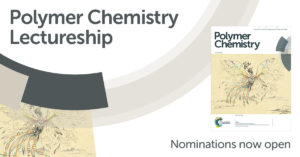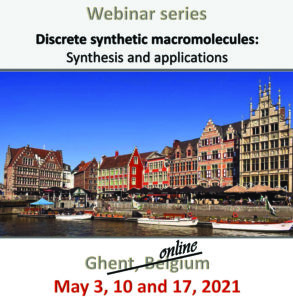It is with great pleasure that we announce Brett Fors (Cornell University) as the recipient of the 2021 Polymer Chemistry lectureship.
This award, now in its seventh year, honours an early-career researcher who has made significant contribution to the polymers field. The recipient is selected by the Polymer Chemistry Science Editorial Board from a list of candidates nominated by the community.
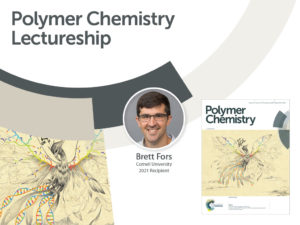
Brett P. Fors was born in Montana and carried out his undergraduate studies in chemistry at Montana State University (2006). He went on to do his Ph.D. (2011) at the Massachusetts Institute of Technology with Professor Stephen L. Buchwald. After his doctoral studies he became an Elings Fellow at the University of California, Santa Barbara working with Professor Craig J. Hawker. In of 2014 he joined the faculty at Cornell University and is currently an Associate Professor in the Department of Chemistry and Chemical Biology. His group’s research focuses on the development and application of new synthetic methods for polymer science. He and his group can be found on Twitter @brett_fors and @forsgroup.
Polymer Chemistry Editor-in-Chief, Christopher Barner-Kowollik, says that Prof. Fors is a leader in the development of advanced (photochemical) synthetic methods, fusing elegant new concepts of organic chemistry with advanced polymer materials design. His research is seminal and inspiring to our community. I am delighted that the 2021 Polymer Chemistry Lectureship is awarded to Brett, a true ambassador of polymer science excellence.
Read Brett’s latest article in Polymer Chemistry “Achieving molecular weight distribution shape control and broad dispersities using RAFT polymerizations” and all of his other publications in Polymer Chemistry for FREE until 1 August. These and articles from our previous lectureship winners can be found in our lectureship winners collection.
How has your research evolved from your first article to the most recent article?
Our research program has evolved to a point that I would not have imagined when our group was getting started–this is a result of having very talented co-workers and collaborators that have taken our research in directions that I could not have predicted.
What excites you most about your area of research and what has been the most exciting moment of your career so far?
Results that change our understanding of a system are especially exciting to me. The most exciting moments of my career have been seeing my students develop and succeed as scientists.
In your opinion, what are the most important questions to be asked/answered in your field of research?
In my opinion the most important questions being asked in a field are not obvious. I strongly believe that continuing to encourage high quality basic research in the area of polymer chemistry is what is important. However, if I was to pick one area that I believe will have an impact on society it would be developing sustainable polymer systems.
How do you feel about Polymer Chemistry as a place to publish research on this topic?
Polymer Chemistry is an excellent platform to publish high quality studies and is one of my favorite journals to read and keep up with the current field of polymer science.
Which of your Polymer Chemistry publications are you most proud of and why?
I cannot choose – I am very proud of all of the work and creativity that my co-workers put into all of our Polymer Chemistry publications.
In which upcoming conference or events (online or in person) may our readers meet you?
With Covid I am currently unsure as conferences are continually being moved but I will definitely be at Pacifichem.
Can you share one piece of career-related advice or wisdom with early career scientists?
My one piece of advice is to work in an area that you are passionate about and don’t forget to enjoy the process of research.
How do you spend your spare time?
I spend my free time with my wife and two kids!
We would like to thank everybody who nominated a candidate for the 2021 Polymer Chemistry Lectureship. The Editorial Board had a very difficult task in choosing a winner from the many excellent and worthy candidates.
Please join us in congratulating Brett on winning this award!
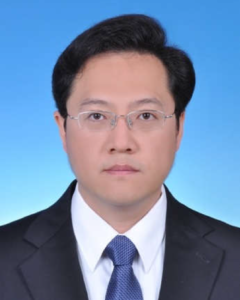 Professor Runhui Liu obtained Ph.D in organic chemistry 2009 at Purdue University. Afterward, he took postdoctoral trainings at California Institute of Technology and University of Wisconsin-Madison during 2010-2014. At the end of 2014, he took a professor position in the School of Materials Science and Engineering at East China University of Science and Technology (ECUST). His current research focuses on peptide polymer-based biomaterials for antimicrobial and tissue engineering applications.
Professor Runhui Liu obtained Ph.D in organic chemistry 2009 at Purdue University. Afterward, he took postdoctoral trainings at California Institute of Technology and University of Wisconsin-Madison during 2010-2014. At the end of 2014, he took a professor position in the School of Materials Science and Engineering at East China University of Science and Technology (ECUST). His current research focuses on peptide polymer-based biomaterials for antimicrobial and tissue engineering applications.











